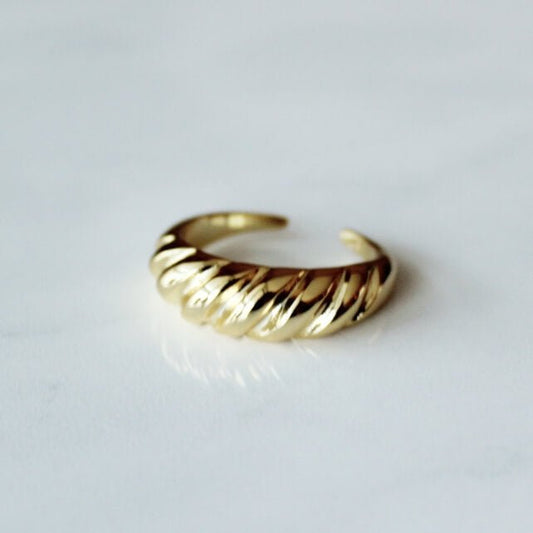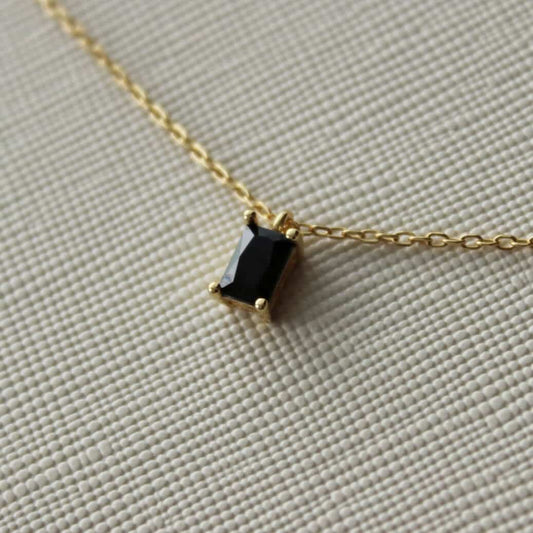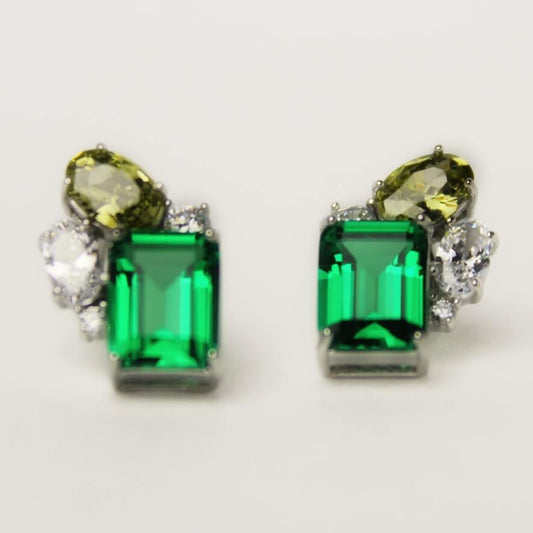Insuring your jewelry can bring peace of mind in the event of loss or damage. However with so many insurance options available it can be overwhelming to know where to start.
In this article, we'll explore the definition of jewelry insurance, the cost of coverage, and the types of protection you can expect to receive. Whether you're insuring a family heirloom or an engagement ring, understanding jewelry insurance can help you make an informed decision that protects your investment. We will also determine whether insuring your jewelry is in your best interest. So let’s take this journey down the jewelry insurance rabbit hole together!
Definition
Jewelry insurance is essential protection for valuable jewelry items, which are frequently lost or stolen. Jewelry worth more than $1,000 to $2,000, depending on the insurer, can be protected by jewelry insurance. According to the FBI, more than $100 million worth of jewelry is stolen each year. Adequate protection is, therefore, critical, whether it is an engagement ring or an expensive necklace that costs the equivalent of three months' income.
Most homeowners' and renters' insurance policies include jewelry in your personal property coverage up to a certain amount. However, that limit can be low, leaving many people with inadequate or no coverage. Jewelry coverage can take effect after a covered event that requires home repairs or other reimbursements. Policyholders can also file jewelry claims without utilizing different parts of the policy.
Cost of Jewelry Insurance
Jewelry is a valuable possession that is not only at risk of theft but can also be easily lost. This is why it's crucial to have insurance coverage to protect your jewelry from any unforeseen events. However, it's important to note that most insurance companies have limits on the amount of coverage provided for jewelry. If your jewelry is worth more than $1,000 to $2,000, you may not receive full compensation in the event of a claim.
To ensure that your jewelry is adequately covered, you need to provide upfront disclosure about the value of your jewelry to the insurance company. This information allows the insurer to assess the risk and set appropriate premiums. Insurance companies typically require a professional appraisal of the jewelry to determine its value.
It's important to note that some insurance policies offer separate coverage for jewelry, which can be a better option for those with valuable pieces. This type of coverage generally requires an annual premium payment of 1% to 2% of the appraised value of the jewelry and typically does not have a deductible.
When it comes to purchasing jewelry insurance, it's essential to shop around and compare policies from different insurance companies. By taking the time to research and understand your options, you can ensure that your valuable jewelry is adequately protected in the event of a loss or theft.
Claiming Jewelry Insurance
When you file a claim for lost, damaged, or stolen jewelry, you submit photographs and other documentation. An adjuster may ask you follow-up questions, and the insurer will settle the claim based on the terms of your insurance policy.
Your insurer will reimburse you if you insure your jewelry under your renters' and homeowners' policies based on the insurance peril, as with other claims. If you have a named perils policy, your jewelry will only be covered if the cause is listed in your homeowners' insurance policy. If you choose an open perils policy, it will be covered if the peril is not excluded in your policy documents.
Common examples of covered hazards include fire or lightning, windstorm or hail, vandalism or theft, falling objects, ice, snow, or sleet, unexpected discharge or overflow of water or steam, and sudden and accidental tearing, cracking, burning, or bulging. A personal property endorsement or a separate policy will also cover accidental or mysterious disappearances or partially damaged jewelry.
What's Covered in Jewelry Insurance?
Jewelry insurance typically covers losses and damages to items such as engagement rings, necklaces, bracelets, earrings, and other precious accessories. Some common scenarios that jewelry insurance covers include theft, loss, damage, and mysterious disappearance.
Theft:
If your jewelry is stolen, your insurance policy will reimburse you for the value of the item. However, it's important to note that not all policies cover theft outside of your home. You may need to purchase additional coverage if you want your jewelry to be protected when you're traveling or if it's stolen from your car.
Loss:
If you lose a piece of jewelry, your insurance policy will pay for the cost of a replacement or repair, depending on the type of policy you have. However, keep in mind that some policies may not cover loss due to negligence, such as leaving your jewelry in an unsecured location.
Damage:
If your jewelry is accidentally damaged your insurance policy will cover the cost of repair or replacement. This can include damage from accidents such as dropping your ring or bracelet or from incidents such as fire or water damage.
Mysterious disappearance:
If you simply can't find your jewelry and believe it may have been lost or stolen, your insurance policy may cover the cost of replacement. However, some policies may require that you wait for a certain amount of time before making a claim for mysterious disappearance.
When purchasing jewelry insurance, it's important to read the policy carefully and understand what is covered and what isn't. You should also keep records of your jewelry, such as receipts and appraisals, to ensure that you receive proper reimbursement in the event of a claim.
In addition to covering the loss, damage, or theft of your jewelry, many insurance policies also include liability coverage. This means that if someone is injured or their property is damaged as a result of your jewelry, your insurance policy may cover the costs associated with the incident.
It's important to note that while jewelry insurance policies can provide valuable protection, not all policies are created equal. Some policies may have higher deductibles or lower coverage limits, while others may exclude certain types of jewelry or losses.
Which jewellery insurance provider is the best?
Before purchasing jewelry insurance, it's important to read the policy carefully and understand the coverage and limitations. You may also want to consider getting your jewelry appraised to ensure that it is properly insured for its full value.
When choosing an insurance provider, it's also important to research the company and its reputation for customer service and claims handling. Some insurers express expertise in fine jewelry, like vintage maharaja era Pearl necklaces and diamonds worn by royalty. Others are more suited in the fine art category. Most people look for their modern jewelry sets to be insured.
Look for reviews and ratings from other policyholders and consult with a trusted insurance agent if you have any questions or concerns.
Here are the top 10 jewelry insurance providers in the world:
- Chubb: Chubb is a global insurance provider that offers coverage for high-value items such as jewelry, art, and antiques.
- AXA: AXA is a multinational insurance company that provides coverage for personal and commercial property, including jewelry.
- Allianz: Allianz is a leading insurance company that offers coverage for valuable items such as jewelry, watches, and fine art.
- AIG: AIG is a global insurance provider that offers coverage for jewelry, as well as other valuable items such as artwork and antiques.
- State Farm: State Farm is a US-based insurance company that offers coverage for personal property, including jewelry.
- Geico: Geico is another US-based insurance company that provides coverage for personal property, including jewelry.
- Farmers: Farmers Insurance offers coverage for personal property, including jewelry, as well as other valuable items such as fine art and collectibles.
- Liberty Mutual: Liberty Mutual is a global insurance company that offers coverage for jewelry, as well as other valuable items such as electronics and musical instruments.
- Nationwide: Nationwide is a US-based insurance company that offers coverage for personal property, including jewelry.
- Travelers: Travelers is a global insurance provider that offers coverage for jewelry, as well as other valuable items such as fine art and collectibles
If you think we’ve done the job for you in bringing you the best insurance providers-think again! This is just the start of your journey, you must research each company individually to see if they’re a good fit for you. Definitely try to research insurance providers in your area. Shop around for a good rate as well since it’s better to be paying $200 a year as opposed to $500 a year.
Is insuring my jewelry right for me?
It’s important to consider whether your jewelry is worth insurance and hassles. Maybe you own a $5000 ring, and you’ve been quoted $50 a year to insure it. In 10 years you will have paid $500 just insurance for a ring that’s not extremely high value and therefore has a lower ROI and lower chance of being stolen.
Whereas if you insured a $60,000 set you would expect to pay about $600 a year. I know $60,000 gold and diamond set sounds like a lot but it’s very common to own than you think especially in Pakistani, Arab and North African cultures. The likelihood of the set being stolen is a lot higher, therefore bringing an urgency to insure it. It’s also likely that this set is going rise in value over the years due to the sheer rarity of the precious metals and diamonds and inflation.
So in ten years this set will cost you $6000 to insure but will most likely be worth upwards of $72,900. That is a growth return of $12,900. This value is based on a 2% inflation rate. If we compare this to our $5000 ring, which will be valued at $5900 in ten years, the growth return won’t be nearly as high to justify insuring.
Additional reasons why we insure jewelry
People do insure jewelry for reasons other than ROIs and growth return.
Here are five common reasons why people insure jewelry other than investment purposes:
- Sentimental value: Jewelry can hold a significant emotional attachment, and many people choose to insure their family heirlooms or special pieces that hold sentimental value. Insuring these items provides peace of mind and ensures that they can be replaced or repaired if lost or damaged.
- Protection against loss or theft: Jewelry is often small and easy to misplace or stolen, and insuring your pieces can provide financial protection in case of loss or theft. The cost of replacing a lost or stolen piece can be high, and insurance can help mitigate this expense.
- Coverage for damage: Jewelry can be delicate and easily damaged, especially if worn frequently. Insuring your pieces can provide coverage for repairs or replacement in case of accidental damage.
- Travel protection: Many people choose to insure their jewelry when traveling, as it is more vulnerable to loss or theft during transit. Travel insurance policies can provide coverage for lost or stolen jewelry while away from home.
- Liability protection: If you own valuable jewelry and someone is injured while wearing or handling it, you could be held liable for damages. Insuring your pieces can provide liability protection in case of an accident.
These additional reasons are important to consider when deciding whether to insure your jewelry. It's not just about the financial investment, but also about the emotional and practical value of the pieces. For example, insuring an engagement ring can provide peace of mind during a time of emotional significance.
Jewelry can also hold cultural significance or be a symbol of a significant moment in someone's life. Insuring these pieces can help preserve their legacy and ensure that they are protected for future generations to enjoy.
Insuring jewelry can also be a wise choice for those who live in areas with high crime rates or natural disasters. It's important to be prepared for the unexpected and having insurance coverage can help ease the financial burden in case of a loss.
Ultimately, it's up to each individual to decide whether insuring their jewelry is worth the cost. However, considering the emotional and practical value of the pieces, as well as the potential financial risks, can help make an informed decision.
In conclusion, if you own valuable jewelry, it's important to consider purchasing jewelry insurance to protect your investment. With the right coverage in place, you can have peace of mind knowing that your precious pieces are protected in the event of loss, damage, or theft.







2 comments
Thank you for the reminder that we have many objects beyond our home and car that is valuable. It is important to consider.
Great and informative post on jewelry insurance. Thank you for sharing the reasons for insuring jewelry as well as where to purchase the insurance.